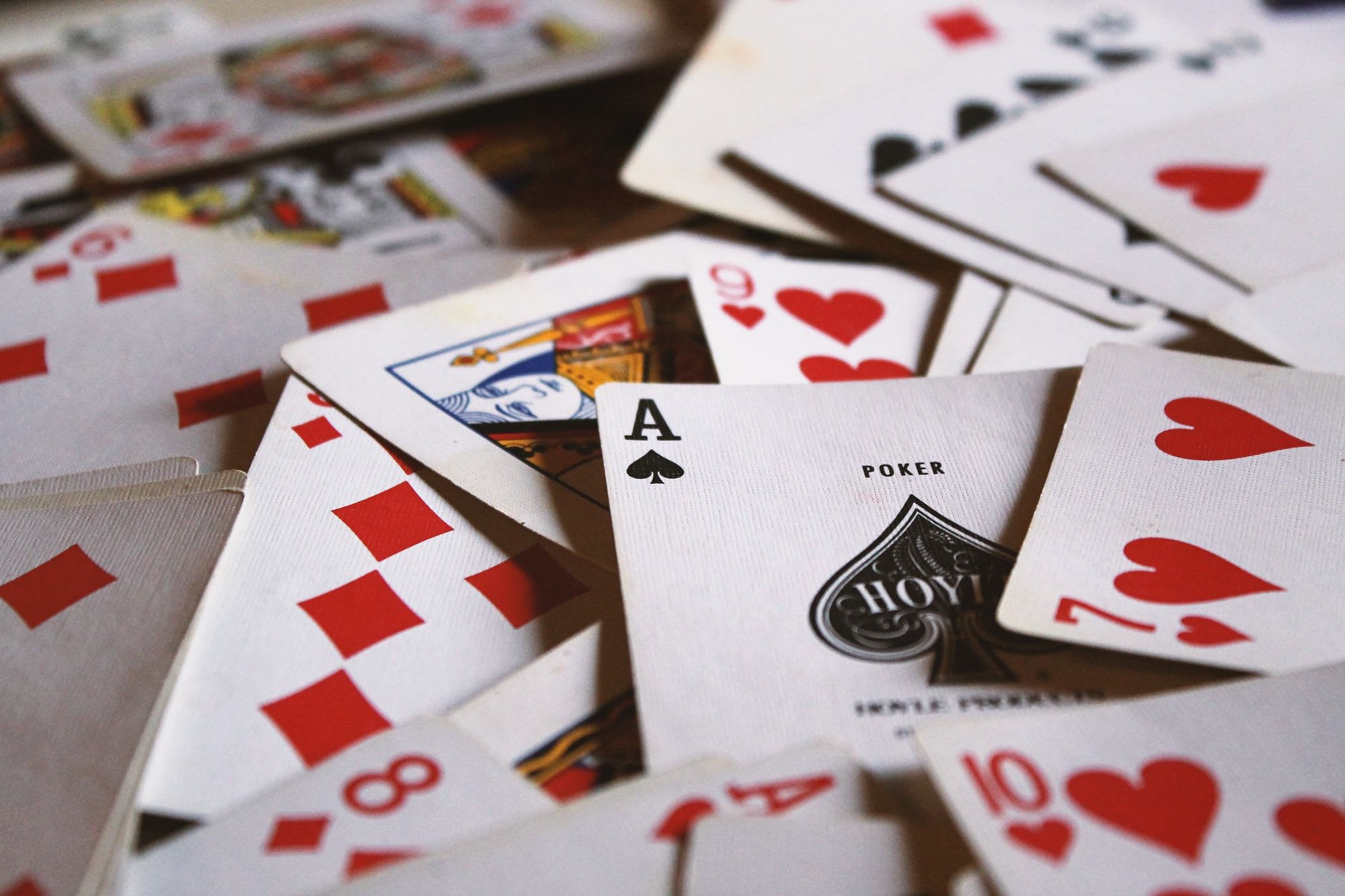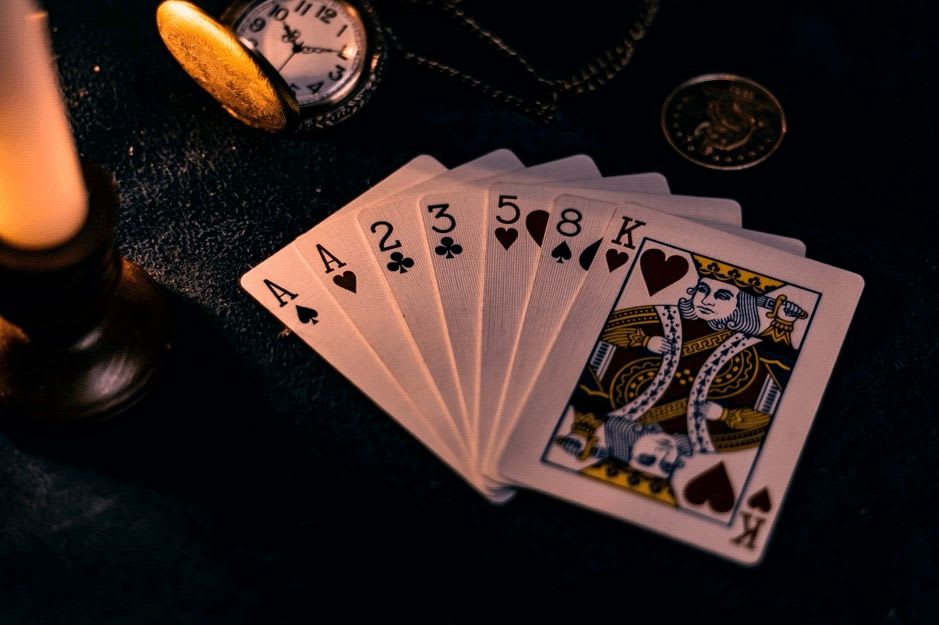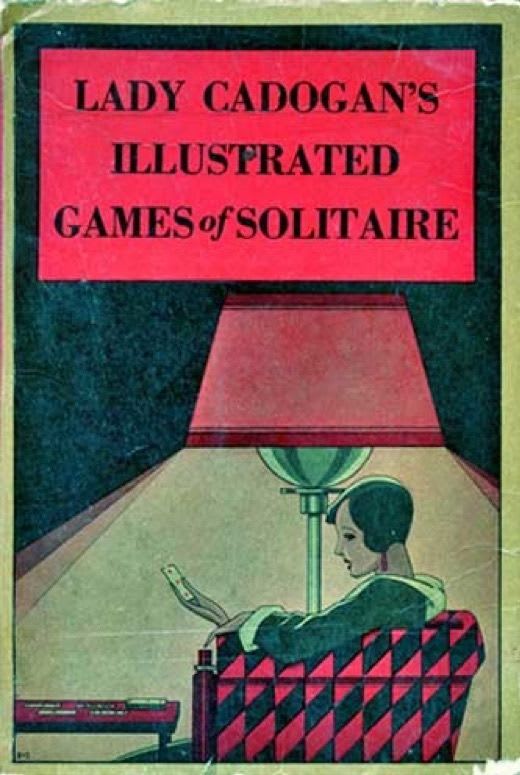A Comprehensive History of Solitaire

Solitaire has a vast history behind the game we enjoy today. We cannot accredit it to a single person, but it has proven to be one of the best solo card games available. It should be noted that there is much discrepancy with the exact dates, but we cover it in a nutshell here. To understand its origins better, we should start with the origins of playing cards.
Roots: From classic Solitaire to Microsoft Solitaire
Playing cards date back to the 12th century in China during the Tang Dynasty. Games were created involving the shuffling and dealing of paper dominoes. In the 14th century, European countries like Spain and Italy began to start using playing cards as a form of entertainment. This arose through trade routes around the globe and was often only played by the wealthy upper class. The deck of cards would also be ostentatious and hand-made, resulting in relatively high prices. Therefore, the market of people this would attract was very minimal, but the opportunity was seized by the aristocracy.
There is a general endorsement that solitaire emerged from France, the country of revolution. There is a rumor solitaire that was created for the French King Louis XIV. The cards created for him had the kings and queens that had resided in the Château before he did. They were called the "Versailles Playing Cards" as this was the city where important political decisions were made, from 1682 to 1789. This was until the King moved to Paris. This all occurred around the end of the 16th century and 17th century, which was an era of card game development, such as "Gingwas" and "All Fours". There was also a redesign of the deck of cards, where the ace card became high instead of low in terms of the positioning of cards.

Fame and fortune
Although we associate solitaire as a game of patience, it used to be a form of fortune-telling during the 18th century. Count Lev Nikolayevich Tolstoy, the author of War and Peace, mentions how he used the solitaire game as an illusory way of decision making. This happens to be during the Napoleonic era when on April 11, 1814, Napoleon was exiled to St Helena because he was perceived as a threat to the stability of European politics. In order to relax, he would play the patience game, which was perfect for him as he was alone. St Helena is an island in the South Atlantic, deserted from anywhere significant, so the games of patience allowed him to reflect.
The game as we know it today
In the late 19th century, the first edition of the solitaire rules was published by Lady Adelaide Cadogan. She wrote for Prince Leopard, the Duke of Albany, who was Queen Victoria's son. Cadogan's book "Illustrated Games of Patience" had various solitaire and patience games' rules. This was the first piece of literature based around solitaire games. This led to the emergence of more literature regarding card game rules. For instance, over twenty years, Miss Mary Whitmore Jones wrote five entire volumes of solitaire books. Throughout the world in the 19th century, more people were literate, and books like these promoted solitaire effectively,. This was a time when electricity had just been discovered, so paperbacks would have been a great way to inform players how to play.
In the 20th century, we begin to see an influx of forms of entertainment such as movies and novels. Solitaire was regarded as one of the great card games of all time and was used in the 1962 movie "The Manchurian Candidate". Such movies brought solitaire to the attention of many more people. This was not the only way solitaire became a household name; it even found its way into a mental asylum. For leisure, the prisoner would play a variation called Cribbage Solitaire, invented by Bill Beers. It is quite evident that solitaire has allowed people to forget about their struggles and relax while playing.

There are many forms of solitaire, however, the version we are familiar with and play in this modern age originated from a casino in Saratoga, New York. This was called "Klondike" after the area in northwest Canada, east of the Alaskan border. One may assume that it would be difficult to promote this in the world solitaire has created. However, "Klondike" was given a major popularity boost as it was included in Microsoft Windows from the 1990s onwards at no extra cost for the user. This attracts around 35 million players every month with over half a billion players in the last decade. Nowadays, it is not the norm to be carrying a deck of cards with you and it does not carry the same dignity and pride as it used to. It is much more convenient for a digital version for solitaire players as it can be played anywhere and at any time. Digital versions of Klondike Solitaire, Freecell Solitaire, Spider Solitaire and various other patience games can be found on our site.
Is solitaire good for your mind?
A great way to think about the effects of solitaire is by using the example of muscles and physical strength with exercise. With a healthy amount of exercise, your physical health is kept intact and you are able to develop muscles over time. The same can be said for solitaire; it is considered as a logic and strategy game, which engages the brain effectively, allowing certain mental skills to improve. For example, the average American uses social media for around five hours a day. These actions really hinder the brain’s capabilities, so a short game of solitaire stimulates cognitive unthinking, which really helps with problem-solving and quick thinking.
In addition, as it is a one-player game, it helps the player step away from the tough circumstances of society, as we have been seeing more recently with the global pandemic. Solitaire has the capabilities to allow the user to almost step away from reality and relax in an easy-going manner. The earliest example of this is when Napoleon was exiled to St Helena; being isolated for sustained periods of time would have driven him crazy, but solitaire allowed him to maintain some mental stability.
Why is solitaire called solitaire?
The word "solitaire" is of French origin, meaning "solitary person, recluse". Solitaire has not always been referred to as such; it was originally called "patience" in England, Poland, and Germany. Whereas, Scandinavian countries called the game "Kabale". These names all relate to the basics of the game: it requires a lot of patience and time, which gives great satisfaction and pleasure to the player if they win. The root of the word "solitaire" is "sol" which means alone, as this is an unaccompanied game.
Ending words
The history of solitaire is broad and very interesting; it is incredible to think that the game we have on our computers today arose from games for the upper class, which are now enjoyed by people of all classes. With over half a billion players, solitaire has definitely made its mark on the world.




